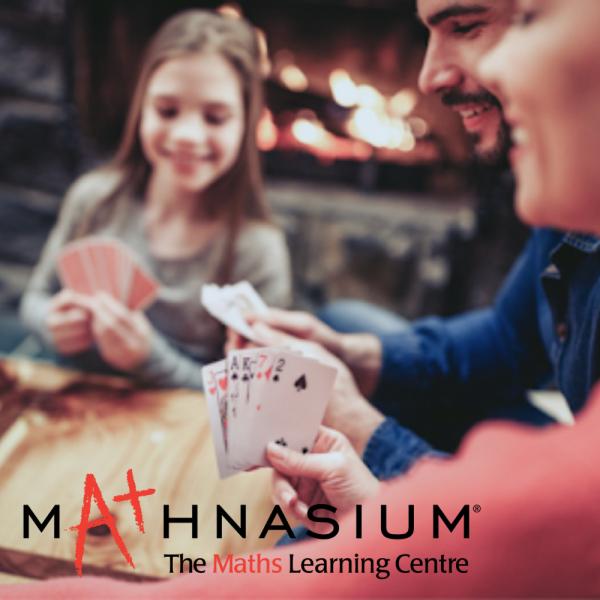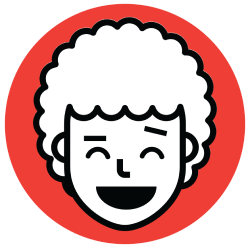As the days get colder and term 2 comes to a close, the winter school holidays can leave parents wondering what they can do to occupy their child's time, while providing educational and fun, family activities! We have compiled 9 exciting, maths-related tasks to help kid's stay on top of their maths skills and create lasting memories this school holidays!
1. Play Board and Card Games
If braving the cold isn’t your style, find a warm and cosy spot and break out the board and card games. Who said improving numerical fluency, logic and application of probability can’t be fun! Choose games that use money, keep a running score, and/or require a strategy. Playing together is a great way to bond with your child.
Some of our favourite games for developing maths skills are Monopoly,Ⓡ Blokus,Ⓡ blackjack, Scrabble,Ⓡ chess and Life.Ⓡ
2. Make Yummy Treats
There are so many maths skills used for cooking that there are entire maths books devoted to culinary maths! Following a recipe introduces maths concepts like sequencing and counting, and turning the oven on is another great way to beat the icy winter! Young chefs will learn to measure precisely for baking and to estimate when a recipe says season “to taste.” If your kids are beginners in the kitchen, start with some DIY Veggie Tacos or At Home Pizza recipe. They will warm you up and they are hard to mess up!
Once they can follow a basic recipe, you may want to introduce scaling and/or converting recipes. Scaling a recipe means changing the amount that the recipe will make. Scaling requires thinking proportionally, a prerequisite for algebra. If children are scaling a baking recipe, they may need to adjust the number of people they’re serving and/or the size of the pan. Use this handy chart to help. Converting a recipe means changing it from metric units to standard units or visa-versa, especially when using a non-Australian recipe. Use this handy calculator to make converting the recipe easier.
Don’t fret if kids make (safe) mistakes. Mistakes are opportunities to learn. If they try to double a cake recipe and the cake fails to rise, they will be motivated to learn how to multiply the measurements. When they follow recipes correctly, they get to eat, and share their creation.
For kid-friendly recipe ideas, go to Australia’s Best Recipes, Kidspot Kitchen, and even Woolworths.
3. Incorporate Music
Loving the music channel on TV, cosying up to a record player by the fire (or heater) or asking your Google Home to ‘play your Spotify’? Music is inherently mathematical. The patterns you hear and recognize in your favourite tunes follow a mathematical structure. Pattern creation and recognition is a basic component of elementary arithmetic and pattern theory makes up a more complex branch in the maths world.
Introduce your child to simple music theory and discuss concepts about fractions and proportions within music. The following activities are perfect for families that don’t have much experience with music:
- Clap the beat to a favourite song.
- Dance to music with various rhythms like waltz, cha-cha, and tango.
- Learn to read sheet music to a simple song, like “Mary had a Little Lamb.” It has a 4/4 time signature (a whole note gets 4 beats, a half note gets 2 beats, quarter notes get 1 beat). When you and your child both understand that, try a song with a different time signature.
Use these great websites as resources:
Common Time Signatures
Creating a Musical Home
Music Theory for Parents
Where Maths & Music Meet In The Brain
4. Draw Pictures
Many children thrive in some alone-time throughout the school holidays, to reflect and relax! Drawing can be relaxing, rewarding, and (you guessed it) boost maths skills! Explore topics such as geometry, proportional thinking, ratios, and patterns by drawing with your children. Talk about how using accurate proportions makes drawings look more realistic. For example, when drawing a face the eyes should be spaced in the middle from top to bottom and the space between the eyes should be equal to the length of an eye. You can try to draw the same objects from various perspectives to explore various curves, angles, lines, and shapes. You may also try enlarging a picture using “the grid method” to reinforce working with percentages and fractions.
Use these websites as resources for the grid method and other drawing techniques:
An Artist’s Guide To the Grid Method
3D Angles and Shading Drawing Activity
Use Maths in Art to Create Perspective
How to Add Depth and Dimension to Pencil Drawings
How to Draw a Face
5. Do a Science Project
It is hard to do a science project without including maths! Choose a project that interests your children. The Topic Selection Wizard is a great resource for choosing a project that matches your interests and abilities. The “wizard” assumes you are doing a project for school, but don’t let that deter you. Input how much time you and your child have for the project, your child’s grade level and general interests. The wizard will ask follow up questions about what your child likes to learn about and do for fun. Not only is the quiz a fun activity to complete together, but you might also learn that your child has a new interest they haven’t yet explored - and add that to your own list of things to do! After answering the questions the wizard comes back with a list of possible project ideas tailored to your child. You can take it from there, and refer back to the aspects of maths you notice in the experiment.
6. Become Entrepreneurs
You may have a young entrepreneur on your hands and not even know it! And with the cold weather keeping your child inside, enticing them with some extra cash to pick up a nice hot chocolate or their favourite treat on your next trip to the shops could be a great incentive to start their own business! Teach accounting skills like counting money, using decimals, estimating and using patterns to make predictions by helping your child start a business. Easy small business ideas for children include babysitting, car washing, lawn mowing and dog walking, or even writing and illustrating their own book. Earning spending money motivates kids in maths. Calculate expenses and profit opportunities. Project future earnings. And if this all seems too much for your child, create a mock business with figures you’ve created yourself.
7. Get Creative and Inventive with DIY Projects
Making things requires children to formulate a strategy and follow through with it just like they need to do with challenging maths problems! Reinforce skills like problem solving, measuring, fractions, proportions and more. To top it all off, you and your child will create a keepsake to remember the fun you had or to even give as gifts to other family members or friends. A fun activity for kids, adults and everyone in-between, the DIY movement kept us all busy during lockdown, so why let it stop there! It is SO fun to experiment with different materials, and no two kids are the same! Explore all textures and materials and be guided by your child!
See these links for project ideas:
Bunnings Kids DIY Projects
DIY Electronics Projects for Teens
Projects on a Budget
39 Projects for DIY Teens
8. Plan a Trip
Strengthen children’s understanding of budgeting by letting them help plan your winter trip . When kids take ownership of how they allocate money it helps with maths skills, and it cuts down on whining for more! The kids can evaluate if it makes sense to spend money on airfare and hotels and have less money for activities. Maybe they would rather drive somewhere, camp, and have more money to spend on activities.
If you already have a destination in mind, try this online flying-vs-driving calculator to compare costs.
9. Throw a Party or Host a Winter Warming Smores Gathering around a fire!
Support your children’s ability to add, subtract, and multiply with decimals by planning a party. Decide on a budget, and let them help suggest a menu and decorations. Ask questions like, “If we spend $30 on decorations, does that leave enough money for food?” If your children need help to get started on the menu calculations, these sites are great resources:
How to Plan the Food and Drinks for a Party
Favourite Food Calculators
Whichever activities you choose, have fun and make memories you and your children will remember fondly. Maths can be a part of activities they enjoy.
You can also keep warm by popping into your local Mathnasium centre! With fun activities, games and more, it’s a certain way to prepare your children to succeed in maths!

















